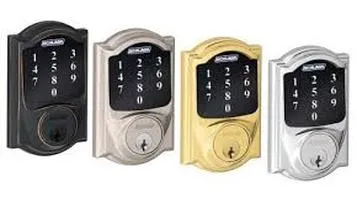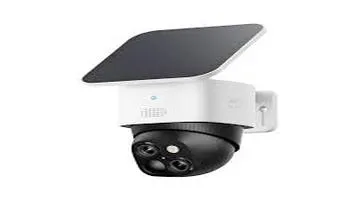A Comprehensive Review of Smart Locks: Balancing Convenience and Security
Smart locks are innovative security devices that enhance the convenience and safety of home and office entry systems. Unlike traditional locks, smart locks allow users to control access through smartphones, key fobs, or voice commands, offering a seamless integration with modern smart home ecosystems. Equipped with features like remote locking and unlocking, temporary access codes, and activity logs, smart locks provide users with enhanced control and monitoring capabilities. Many models are compatible with virtual assistants such as Amazon Alexa, Google Assistant, and Apple HomeKit, enabling voice-controlled access. The sleek design and robust encryption of smart locks ensure both aesthetic appeal and security. As a result, they are increasingly popular among tech-savvy homeowners and businesses looking for advanced and flexible security solutions.

In an era where technology continues to revolutionize our daily lives, the humble door lock has not been left behind. Smart locks, the latest evolution in home security, offer a blend of convenience and advanced features, promising to make our homes safer and more accessible. But do they live up to the hype? This review delves into the world of smart locks, exploring their advantages, potential drawbacks, and overall performance.
Convenience and Accessibility
One of the primary selling points of smart locks is their convenience. Traditional keys can be easily lost, forgotten, or stolen, leading to unnecessary stress and expense. Smart locks eliminate the need for physical keys altogether, offering a range of alternative entry methods such as numeric keypads, smartphone apps, fingerprint recognition, and even voice commands.
The ability to control your lock remotely is a game-changer. Imagine being able to unlock your door for a guest while you're still at work or ensuring your home is secure after you've left in a hurry. With smart locks, these scenarios are no longer just a figment of imagination. Many models allow real-time monitoring and control through a dedicated app, providing peace of mind whether you're just around the corner or halfway across the world.
Enhanced Security Features
When it comes to security, smart locks offer several advantages over traditional locks. Many models come equipped with advanced encryption technologies to prevent unauthorized access. Additionally, smart locks can send instant notifications to your phone if someone attempts to tamper with the lock or if a door is left ajar.
Certain models also feature built-in cameras and microphones, allowing you to see and communicate with whoever is at your door, adding another layer of security. Some even integrate with other smart home devices like security cameras, alarm systems, and smart lights, creating a comprehensive and interconnected home security network.
Easy Installation and Integration
One of the concerns potential buyers might have is the complexity of installation. Fortunately, many smart locks are designed with user-friendliness in mind. Most models can be installed with just a screwdriver and minimal technical knowledge, making it accessible for the average homeowner.
Moreover, smart locks are highly compatible with existing smart home ecosystems. Whether you're using Amazon Alexa, Google Assistant, or Apple HomeKit, there's likely a smart lock that will integrate seamlessly with your preferred platform. This compatibility allows for a more cohesive and customized smart home experience, where various devices can work in tandem to enhance security and convenience.
Potential Drawbacks
While smart locks offer numerous benefits, they are not without their challenges. One significant concern is the reliance on technology. If the lock's batteries die, your Wi-Fi goes down, or the company's servers experience issues, you could potentially be locked out of your own home. However, many smart locks come with backup options such as physical keys or emergency power terminals to mitigate this risk.
Another potential issue is the vulnerability to hacking. Despite advanced encryption, no system is entirely foolproof. Cybersecurity threats are a real concern, and while manufacturers are continually updating their security protocols, the risk cannot be entirely eliminated. Users should ensure they follow best practices, such as using strong, unique passwords and regularly updating their lock's firmware.
Cost Considerations
The cost of smart locks can be another deterrent for some. While prices have become more affordable over the years, they are still generally more expensive than traditional locks. However, when considering the added convenience, enhanced security features, and potential integration with other smart home devices, many find the investment worth it.
User Experience and Reviews
User reviews for smart locks are generally positive, with many praising the ease of use, convenience, and added security features. However, there are some common complaints, such as issues with connectivity, battery life, and occasional software glitches. It's essential to research and choose a reputable brand with good customer support to address any potential issues promptly.
Conclusion
Smart locks represent a significant advancement in home security, offering unparalleled convenience and a host of features that traditional locks simply cannot match. While there are potential drawbacks, such as technological reliance and higher costs, the benefits often outweigh these concerns. For those looking to modernize their home security, smart locks are a worthy investment, providing peace of mind and making everyday life a little easier.
In summary, smart locks are not just a passing trend but a valuable addition to the modern home. They bring together the best of technology and security, making our homes safer and our lives more convenient. As long as users are aware of potential pitfalls and take necessary precautions, smart locks can be a reliable and efficient solution for the future of home security.






